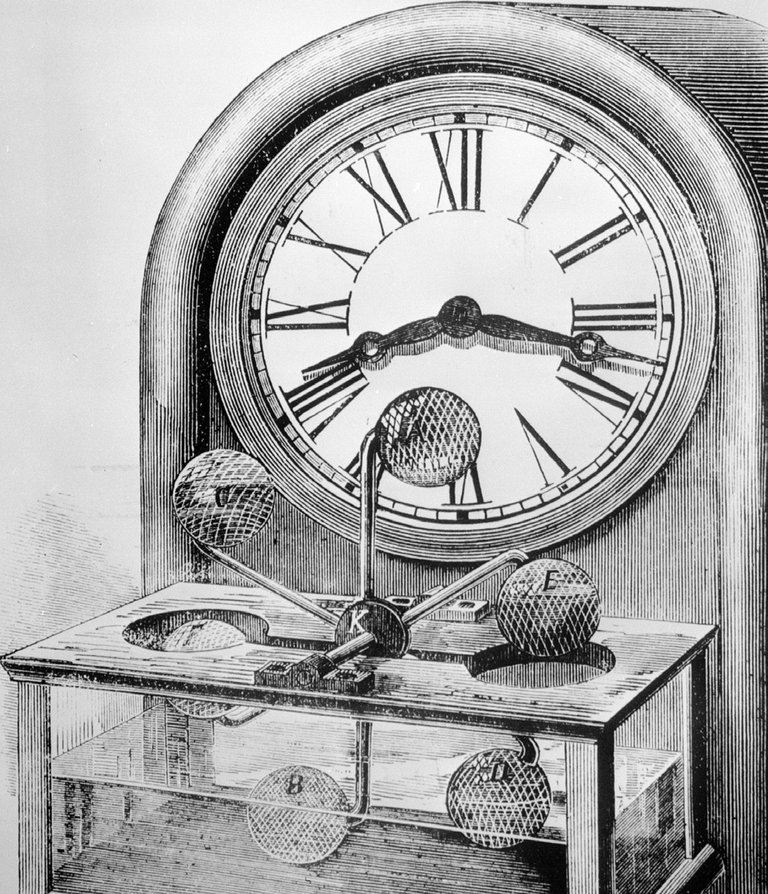
Ever since the invention of the wheel,Man has been searching for unlimited energy - the idea of perpetual motion,the notion that once the machine starts turning,it would never stop. The laws of physics tell modern scientists that perpetual motion is an impossibility, but engineers from previous times were not governed by such inhibitive rules. Between 1607 and 1903 the British Patent Office received over 600 applications for perpetual motion inventions.
However, only one man has dared to suggest he really did conquer the problem.Johann Ernst Elias Bessler was born in 1680 in Zittau in Saxony. In 1712 he appeared in the town of Gera with a wheel which he claimed was self-moving. With a little push to start, the three-feet-wide, four-inch-thick wheel worked itself up to a regular speed. It could lift a weighted bag and, it was claimed, would continue turning forever.
But Bessler seemed to attract many enemies, and very little notice was taken of his invention.In 1716,the Landgrave of Hesse-Cassel became his patron,and it was at his home in 1717 that Bessler created his greatest wheel.
Twelve feet wide and fourteen inches thick, it constantly revolved at 25 or 26 turns a minute.
On 12th November 1717 the wheel was locked and sealed in its room. Two weeks later the room was reopened and the wheel was still turning at a constant 25 rpm.They sealed it away for a further six weeks, and once more, when viewed, it was revolving at 25 rpm. Bessler asked for £20,000 to reveal the secrets of his wheel,but nobody seemed ready to provide such a huge amount of money. At the same time, his enemies were casting doubts on his invention,but many learned and official figures who studied the wheels confirmed there was no trickery involved.
Bessler grew impatient and vexed and simply disappeared, taking his secret to his grave. It is said that he left certain clues which, when deciphered,will demonstrate how his amazing machine worked.
But until then perpetual motion will have to remain, at least in scientific eyes, a practical impossi-bility.
Prvi put čujem za ovo.
Ubaci neki video na kraju, to učini post boljim. Moš još koju sliku ovog inventora dodat ili nešto vezano za ovo.
boli me kiki
wonderfully
more and more inventors manage to create them with different ways of achieving it. the future is right around the corner, things are moving pretty fast.